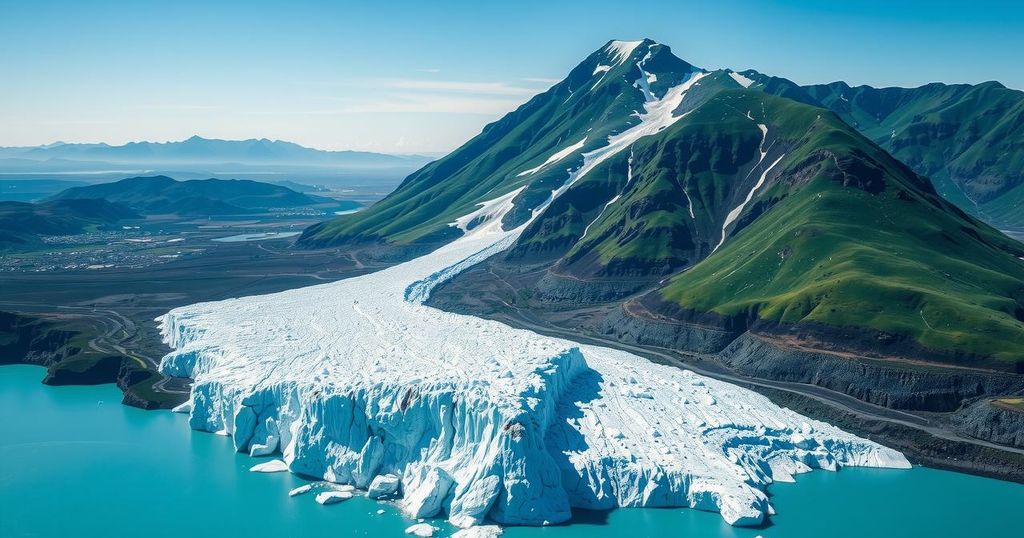The Threatening Melting of Africa’s Last Glaciers and Its Impact on Local Communities

The glaciers of the Rwenzori mountains in Uganda are melting at an alarming rate, threatening local villages that depend on their water supply. Increased flooding, driven by climate change and human activities, disrupts communities. Local scientists are working with residents to monitor the situation and implement sustainable practices using indigenous knowledge. The current crisis emphasizes the urgent need for environmental restoration to safeguard both the culture and livelihoods of local populations.
The melting glaciers atop the Rwenzori mountains in Uganda pose significant threats to surrounding villages that rely on them for sustenance. As the ice recedes, flooding has become more frequent, disrupting local communities and destroying vital infrastructure. Experts, such as Dr. John Sekajugo and Professor Matthieu Kervyn, are mobilizing citizen scientists to monitor water flow and provide early warnings for floods. Consequently, community involvement is crucial in mitigating the adverse effects of environmental changes.
The Rwenzori mountains, which rise to 5,109 meters, hold one of the last remaining glaciers in Africa, yet this precious ice is rapidly diminishing due to climate change. What was once 7.5 square kilometers of glacial ice has now shrunk to less than one square kilometer. This melting presents not only a decrease in water supply for millions but also threatens the ecological balance and cultural significance of the area.
Dr. Hilde Eggermont highlights that the glacier’s retreat has broader implications, disrupting hydrological cycles and increasing vulnerability to extreme weather events. Concurrently, human activities, like deforestation and intensive agriculture, exacerbate the situation and increase natural disaster risks. These changes have significant socioeconomic impacts on local farmers, who face devastating losses due to floods and landslides.
For the local ethnic groups, such as the Bakonzo and Batoro, the mountains symbolize spiritual and cultural identity. Dr. Bosco Bwambale emphasizes the importance of indigenous knowledge in maintaining a harmonious relationship with the environment. Regaining this connection can guide communities in their response to environmental changes.
Initiatives focused on agrarian sustainability and ecological restoration are emerging as local specialists work to integrate traditional practices with modern conservation techniques. Agroforestry efforts, led by figures like Benon Bwalhuma, aim to restore ecosystems through planting indigenous trees that stabilize soil and protect waterways. Meanwhile, community members, such as Kezia Bunehezi, adapt their farming methods to ensure sustainability in increasingly uncertain conditions.
The shrinking glaciers of Africa represent not just a climatic challenge but a cultural and ecological crisis. Reviving indigenous practices is essential to balance environmental resilience with the needs of local populations, as the region faces an urgent fight against time.
In summary, the glacier melt on the Rwenzori mountains poses a significant threat to local communities relying on glacial water. The consequences include increased flooding, changes in water supply, and a loss of cultural heritage. However, efforts led by scientists and local organizations aim to preserve indigenous knowledge and restore ecological balance. Urgent action is required to secure a sustainable future for the people and ecosystems of this region, as they navigate the challenges presented by climate change.
Original Source: www.telegraph.co.uk






